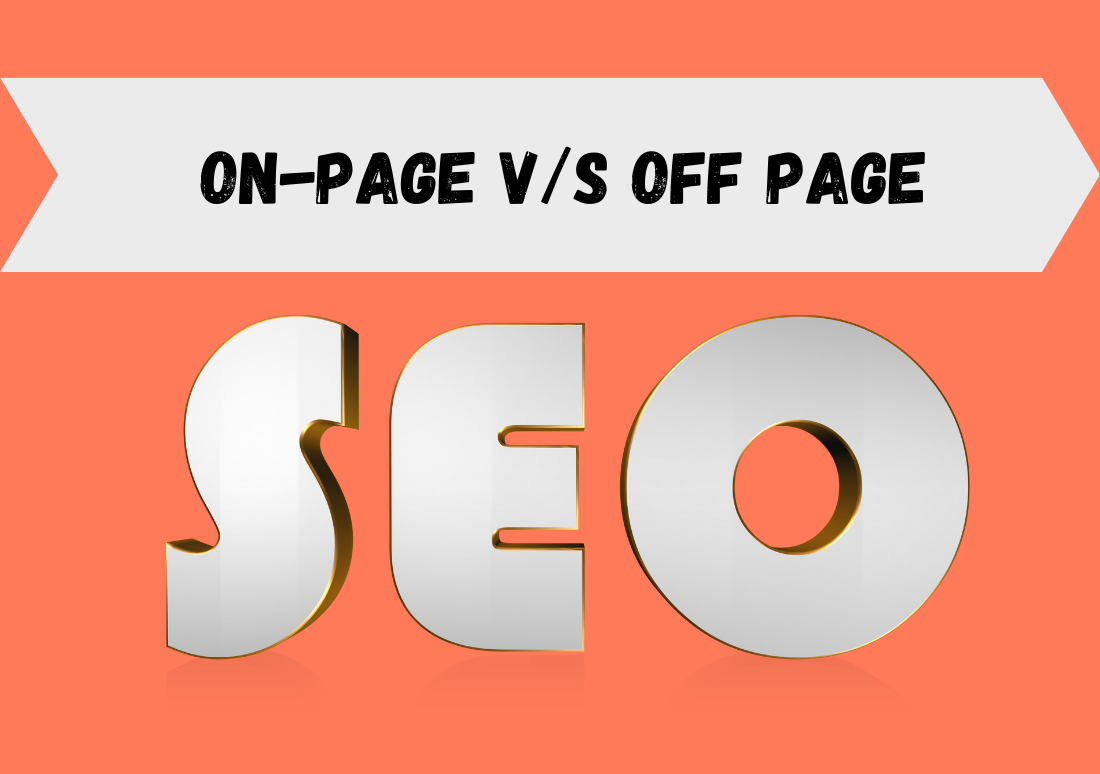
February 7, 2023
On-page and off-page SEO are two important aspects of search engine optimization (SEO) that can help a website rank higher and earn more relevant traffic in search engine results pages.
On-page SEO involves optimizing individual web pages in order to rank higher and earn more relevant traffic, while off-page SEO involves building links from other websites and improving the overall authority and credibility of the website.
Both on-page and off-page SEO are important for the success of a website in search engines, and they should be incorporated into any effective SEO strategy. In this article, we will take a closer look at the differences between on-page and off-page SEO, and how they can be used to improve the performance of a website in search engines.
On-page SEO refers to the practice of optimizing individual web pages in order to rank higher and earn more relevant traffic in search engines. This includes the content of the page, the HTML source code of the page, and any other elements that are a part of the actual page. On-page SEO can be controlled by the website owner, and it is an important aspect of search engine optimization because it helps search engines understand what a webpage is about, and how it may be useful for users.
There are several key elements that can be optimized as part of on-page SEO
1. Page title
The page title is the text that appears in the browser tab, and it is also the first line of text that appears in the search engine results pages (SERPs). The page title should be descriptive and relevant to the content of the page, and it should include the primary keyword that the page is targeting.2. Meta description
The meta description is a brief summary of the content of the page, and it appears below the page title in the SERPs. The meta description should be compelling and include the primary keyword for the page.3. Headings
Headings, or H1 tags, are used to indicate the hierarchy of the content on the page. The H1 tag should include the primary keyword for the page, and it should be used to introduce the main topic of the page. Subheadings, or H2 tags, should also be used to break up the content and make it easier to read.4. Content
The content of the page should be high-quality, informative, and relevant to the topic of the page. It should include the primary keyword for the page, as well as related keywords and phrases.5. Images and videos
Images and videos can help to make a page more engaging and can also help to improve its SEO. Image file names and alt tags should include the primary keyword for the page, and videos should include a transcript or a written summary.Off-page SEO refers to the practice of building links from other websites to your own website, in order to improve your search engine rankings. This can be done through a variety of methods, such as guest blogging, social media marketing, and link building.
Off-page SEO is important because it helps to improve the authority and credibility of your website, and it can also help to drive more traffic to your site.
Here are some key elements of off-page SEO
1. Link building
Link building is the process of acquiring links from other websites to your own. These links act as “votes” for your website, and they can help to improve your search engine rankings. In order to be effective, links should be high-quality and come from reputable sources.2. Social media marketing
Social media platforms such as Facebook, Twitter, and LinkedIn can be used to promote your website and acquire links. By sharing high-quality content and interacting with users on social media, it is possible to drive traffic and build links to your website.3. Guest blogging
By writing articles for other websites and blogs in your industry, it is possible to build links to your own website and improve your off-page SEO. In order to be effective, guest blog posts should be well-written and provide value to the reader.4. Online directories
Submitting your website to online directories such as IndiaMart, Yellow Pages, Business Finder and the Better Business Bureau can help to improve your off-page SEO.Key Differences Between On-Page & Off-Page SEO
1. Focus
On-page SEO is focused on optimizing individual web pages, while off-page SEO is focused on building links and improving the authority of the overall website.2. Strategies
On-page SEO strategies are primarily concerned with optimizing the content and HTML source code of a webpage, while off-page SEO strategies involve acquiring links from other websites and building the credibility and reputation of the website as a whole.3. Control
On-page SEO can be controlled by the website owner, while off-page SEO relies on external factors such as the actions of other websites and users.4. Impact on search engine rankings
On-page SEO can help to improve the visibility and relevance of a webpage in search engines, which can lead to higher rankings. Off-page SEO can help to improve the overall authority and credibility of a website, which can also lead to higher rankings.5. Importance
Both on-page and off-page SEO are important for the success of a website in search engines. On-page SEO helps search engines understand the content of a webpage and how it may be useful for users, while off-page SEO helps to improve the credibility and authority of a website, which can lead to higher rankings and more relevant traffic.In Conclusion
on-page and off-page SEO are two integral components of a comprehensive search engine optimization strategy.
On-page SEO entails optimizing individual web pages to enhance their relevance and visibility in search engines, while off-page SEO involves building links and increasing the authority of a website as a whole.
While they may differ in their approaches and focus, both on-page and off-page SEO are essential for achieving high search engine rankings and driving relevant traffic to a website. To achieve optimal results, it is important to implement both on-page and off-page SEO techniques according to what fits your business best.




No Comments